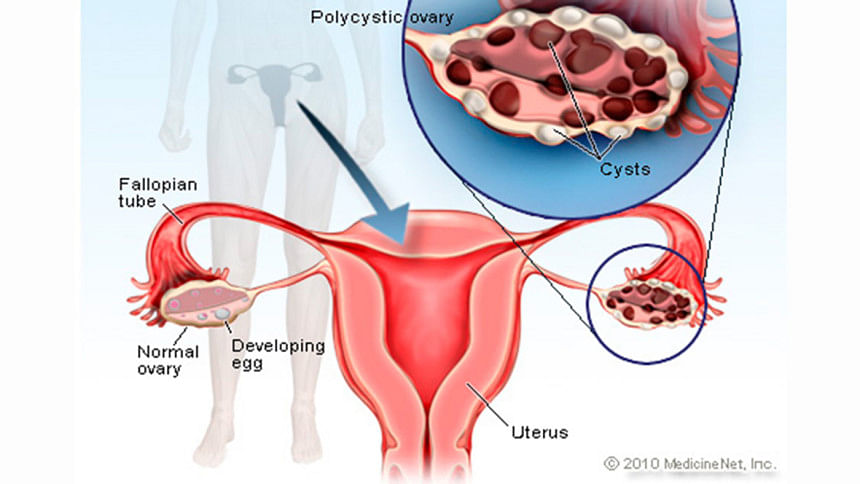Managing symptoms of polycystic ovary syndrome

Polycystic ovary syndrome (PCOS) is a common hormonal problem for women around the world.
It happens when a woman cannot ovulate because of the lack of a certain kind of hormone in her body. Ovaries develop many small cysts as a result. The cysts then increase androgen levels in women causing further problems.
The term "polycystic" refers to the multiple cysts of the ovaries most patients develop.
PCOS usually cannot be completely cured. But its physical symptoms -- weight gain, hair growth, and acne, etc. -- can be managed through medication and lifestyle changes.
A FEW WAYS TO MANAGE PCOS
Losing excess weight helps reduce symptoms. A healthy diet and more physical activity help in this case. Proper diet and exercise also help the body use insulin more efficiently, lower blood glucose levels, and may assist in ovulation.
Medication can help the ovaries to ovulate normally. However, these medications may pose certain risks. Consult your physician for proper dose of medication.
Birth control pills also may help control menstrual cycles, lower androgen levels, and reduce acne.
Diabetes medication is often used to lower insulin resistance in PCOS.
One is at risk of being diagnosed with PCOS in case of irregular periods, excessive hair growth, acne, and weight gain. Seeing a doctor for proper diagnosis and treatment is recommended.

 For all latest news, follow The Daily Star's Google News channel.
For all latest news, follow The Daily Star's Google News channel. 



Comments